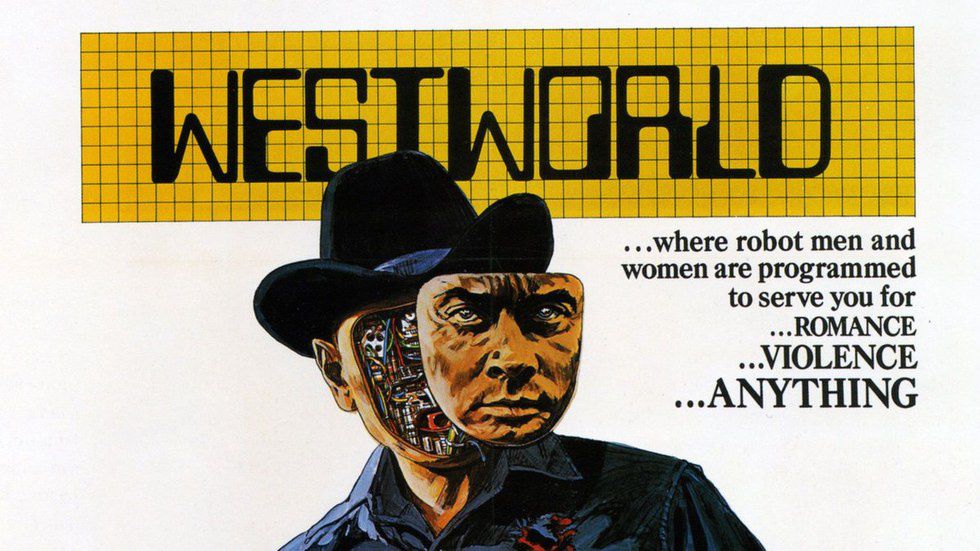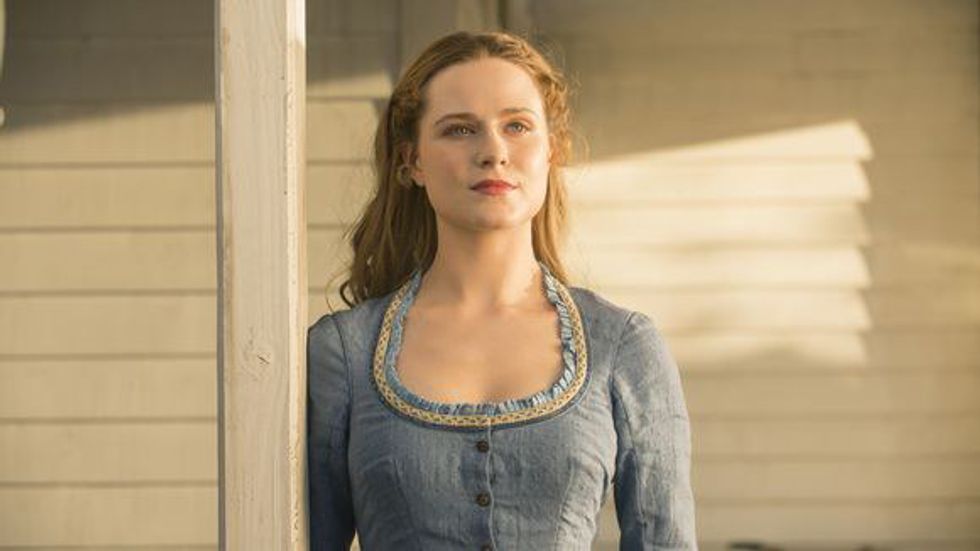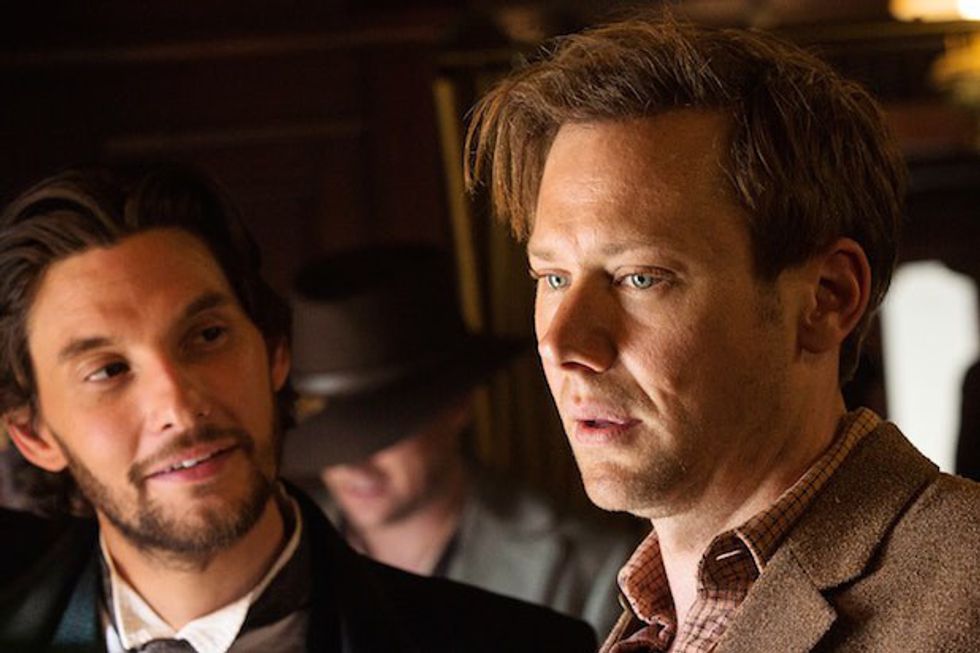Imagine an amusement park where you can indulge in anything you desire with no consequences at all. Sex, violence and adventure like you’ve never experienced before. The park mimics the Old West with railroad tracks, gunslingers and saloons. And the hosts are androids designed to give you the adventure you crave. What could possibly go wrong? Jonathan Nolan and Lisa Joy pair with J.J. Abrams to produce "Westworld," an HBO original series.
Twenty three years ago, J.J. Abrams sat down with the author and director of the 1973 film "Westworld," Michael Crichton. They discussed remaking Crichton's 1973 Sci-Fi Western thriller film, but Abrams was astounded by the complexities of it and couldn't find the best way to capture it, until he realized the answer was in a TV series.
Michael Crichton was born October 23, 1942, and died November 4, 2008. Crichton is best known for his books and film adaptations of "Jurassic Park" and "The Lost World" (an updated version of Sherlock Holmes author Conan Doyle’s "Lost World"). In 1994, he had three different works simultaneously topping the charts: the film "Jurassic Park," television series "ER," and book "Disclosure." Crichton was the first to reference a computer virus in the robots of "Westworld." A virus didn't occur in the real world until a year later. He had a knack for cautionary tales about what can go wrong with humans and our machines.
The creators of the HBO series, Jonathan Nolan and Lisa Joy, are veterans to producing Sci-Fi on-screen. Married since 2009, this is the first project they will have worked on together. Nolan co-wrote "Interstellar" with his older brother (along with several others) and has worked for several years now on "Person of Interest" with Abrams. Joy is currently writing "Battlestar Galactica." Nolan's experience with illustrating Artificial Intelligence shows in the first few episodes of "Westworld."
The park is inhabited by 'hosts' that conduct themselves according to planned out story lines written by the park's creators. The 'hosts' are androids crafted to look like humans. They can be killed, have sex, and perform any other acts according to the story lines. The 'guests' cannot die; they're protected within the story line, but inklings crop up in episode 1 that foreshadow a problematic outcome. The hosts have a constructed amnesia where their minds are wiped clean of the horrible things that happen to them. After an update to the android systems, a glitch starts to surface in some of the hosts. Their consciousness becomes problematic as they begin to have traces of memories.
The ingenuity behind this nuanced "Westworld" is the reversed point of view. Unlike the original, we see the story through the hosts POV, particularly Dolores. Dolores is a young blonde and the oldest host at the park.
By episode 3, we gain insight into the experience of the park from an actual human being. Jimmi Simpson plays our hero as he accompanies his friend to what the friend calls more than "guns and tits and all that mindless shit I usually enjoy." They ride in on a train that stops at an Old West town. First stop? The Saloon.
"Westworld" raises many difficult questions surrounding the dehumanization of the technological world and one of our worst fears. What if our machines enslave us, and humans are no longer on top of the food chain? It meditates on the human condition and what it means to be human. Are we all inherently bad?
And for this reason, this cautionary tale of A.I. has stayed relevant since 1973, and it will stay relevant as we question our co-existence with machines.
It begs the question, what would you do if you had the chance to indulge in your wildest dreams and worst fantasies with absolutely no consequences?




















